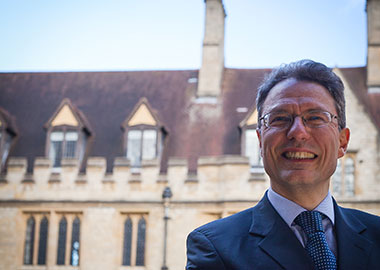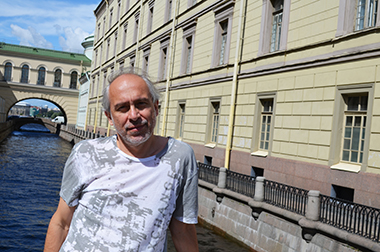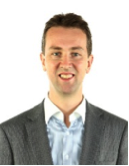|
Keynotes
Download
Prof. Luciano Floridi (Oxford Internet Institute, University of Oxford)

Luciano Floridi is Professor of Philosophy and Ethics of Information
at the University of Oxford, Senior Research Fellow at the Oxford
Internet Institute, and Governing Body Fellow of St Cross College,
Oxford. He is also Adjunct Professor, Department of Economics,
American University, Washington D.C. Among his recognitions, he has
been awarded the Cátedras de Excelencia Prize by the University Carlos
III of Madrid (2014-15), was the UNESCO Chair in Information and
Computer Ethics and Gauss Professor of the Academy of Sciences in
Göttingen. He is a recipient of the APA's Barwise Prize, the IACAP's
Covey Award, and the INSEIT's Weizenbaum Award. He is an AISB and BCS
Fellow, Editor in Chief of Philosophy & Technology and of the Synthese
Library. In 2012, he was Chairman of EU Commission's "Onlife
Initiative". His most recent books are: The Fourth Revolution - How
the infosphere is reshaping human reality (Oxford University Press,
2014), The Ethics of Information (Oxford University Press, 2013), The
Philosophy of Information (Oxford University Press, 2011), The
Cambridge Handbook of Information and Computer Ethics (editor,
Cambridge University Press, 2010), and Information: A Very Short
Introduction (Oxford University Press, 2010).
The Logic of Information Design
At least since the sixties, there have been many attempts to understand
the logic of design, when the latter is broadly understood as a
purposeful way of realising an artefact. In this talk, I shall explore
current methodologies to see how they may be adapted to cases in which
what is being designed is information, in the sense of both a semantic
artefact (e.g. a train timetable) and a communication process (e.g. the
announcement that a specific train is leaving from particular platform).
Prof. Andrei Voronkov (University of Manchester)

Andrei Voronkov graduated from the department of Mathematics at
Novosibirsk State University in 1982. Between 1982 and 1989 he was a
PhD student in Novosibirsk State University and a researcher at the
Institute of Mathematics, Novosibirsk. He received his PhD in
mathematics from Novosibirsk State University in 1987, He was then
interested in constructive logic, realisability and program synthesis
and also did some work in the foundations of theorem proving. In 1989
he moved as senior researcher to the International Lab of Intelligent
Systems in Novosibirsk and in 1991 as researcher in European Computer
Industry Research Centre (ECRC) in Munich, this time interested in
logic programming. In 1993 he moved to Uppsala University as senior
lecturer. He worked on a variety of topics, including theorem proving,
decision procedures, infinite state model checking and database theory
until 1999.
In 1993 he visited a Bull research lab in France. This visit sparked
his interest in practical aspects of theorem proving, so he quickly
implemented a first-order theorem prover Vampire, which since then has
won 28 World Championship titles in theorem proving. His research
interest shifted to implementation techniques for theorem provers,
equality reasoning and decision procedures and he started to dedicate
considerable time to programming.
In 1999 he joined the Department of Computer Science at the University
of Manchester as Professor of Formal Methods. While chairing two
program committees in 2002, he designed a simple conference management
system to assist him. The system, now called EasyChair, was growing
fast in popularity and has become the largest system of this kind in
2006. EasyChair now has over 1,100,000 users.
Andrei Voronkov is working at the University of Manchester and spends
his time doing research in theorem proving and EasyChair-inspired
areas, such as automatic code analysis and (secure) code generation,
scientific document analysis, keyphrase extraction and constraint
satisfaction problems related to conference management. He published
over 150 papers in various areas of computing and math. He is
currently working on changing the life of scientists forever and to
the better with EasyChair.
EasyChair
EasyChair started in 2002 as a small collection of scripts helping the
author to organise submission and reviewing for the conferences LPAR
and CADE. Since then it has served over 30,000 conferences and
1,100,000 users. The system has over 240,000 lines of source code and
automates paper submission, reviewing, proceedings generation,
publishing, conference registration and conference programme
generation. Several new modules are under development.
The design and architecture of every very large Web service is unique,
and EasyChair is not an exception. This talk overviews design features
of EasyChair, which may be interesting for the software engineering
community:
(1) Highly agile development methodology
(2) Design centred around a small number of concepts
(3) Automatic generation of efficient and secure code
(4) An object caching technique eliminating mismatch between objects
and relational data
(5) Server-side generation of client-side code
(6) Automation of code management
(7) Light-weight code analysis
(8) Automatic generation of documentation
(9) Integrity constraint management
Nearly 50% of EasyChair code is now generated automatically. The high
level of code management automation of EasyChair has allowed the
author to increase the code size by around 50,000 lines in the last 12
months and also make the code easier to maintain and understand.

Magnus is the head of ABBs development center in Bangalore, India. In
Bangalore He work closely with ABB research and lead the
implementation of the many of the research results into ABB products.
Prior to his position in India, Magnus worked as manager at ABB
Corporate Research in Västerås, Sweden where his department worked in
the area of software architecture and user experience. Magnus is also
engaged part time in the academia as an adjunct professor at
Mälardalen University in the area of component-based software
engineering and software architecture. Since 2007 Magnus has been
invited to the Swedish foundation for strategic research, mainly to
define new national research programs.
Experiences from developing industrial software systems with long lifecycles
Industrial systems very often control critical infrastructure like power plants or factories. A failure can have huge impact on the production from such a plant and impact both companies as well as society. Since the investment in industrial control systems for a plant or factory is big it is expected and requested that the systems can stay operational for a time period very often exceeding a decade or more. This talk highlights experiences from the research and development of such systems. Especially we look at automation of software engineering tasks to enhance developer productivity and how quality can be assured. The talk will also highlight the importance of understanding the domain and customer in order to make the best possible industrial software.
|

